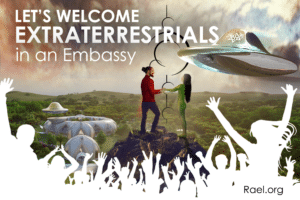According to a U.S. Intelligence report, most Americans believe in the existence of intelligent life elsewhere in the universe, while only a few see UFOs (UAPs) as a significant threat to National Security (1). Quite intriguingly, in contrast to the assertions of government officials and other individuals, the general public does not perceive UFOs as a significant threat to the nation. When prompted to consider U.S. national security, the majority of Americans (87%) express that they do not consider UFOs a threat whatsoever (51%) or view them as a minor concern (36%). Only one in ten respondents regard UFOs as a major threat to U.S. National Security. By and large, Americans tend not to jump to the assumption that UFOs are hostile. When asked for their best guess regarding the nature of UFOs, 17% perceive them as friendly, 7% consider them unfriendly, and the majority, accounting for 74%, regard them as neither friendly nor unfriendly. This trend remains consistent even when focusing on adults who believe that UFOs reported by military personnel are probably or definitely evidence of intelligent extraterrestrial life. Among the 51% of U.S. adults who say UFOs are, at least probably, evidence of intelligent extraterrestrial life, 26% perceive UFOs as friendly, 7% as unfriendly, and 65% as neither friendly nor unfriendly.Certain demographic groups within the public exhibit a higher inclination to believe in the existence of intelligent life on other planets, with this perspective being notably prominent among younger Americans. Approximately 76% of adults aged under 30 hold the belief that intelligent life exists on other planets, in contrast to 57% of individuals aged 50 and older.

In the July 2023 UFO Hearing in the United States Congress, a panel of experts testified before Congress, highlighting that they consider UFOs to present potential threats to National Security (2).
We find ourselves dealing with two distinct narratives. Most regular citizens believe that UFOs do not represent a threat, whereas experts hold a contrasting viewpoint. Those who follow us are already aware of our stance on this matter: UFOs and extraterrestrials, without a doubt, pose no threat to National Security!
Politicians do not exclusively base their governance on polls, although they can be somewhat influenced by poll results. Public opinion polls provide a momentary glimpse into how the population perceives specific issues, policies, or the performance of elected officials. Politicians often take notice of these polls because they offer valuable insights into the feelings and preferences of their constituents. However, government decisions regarding UFOs appear to be unaffected by popular opinion pressures; otherwise, all information would have been disclosed long ago, and there would be no secrecy surrounding this phenomenon. The polls indicate a clear sentiment: people believe in UFOs and extraterrestrials and do not consider them a threat. We are ready for the truth!It seems clear to me that secrecy serves the interests of some, either by keeping people in fear of an extraterrestrial threat (a strategy that doesn’t seem to be working), or the implications of a revelation of their existence would be enormous and would constitute a major turning point in sociological, political, religious and economic spheres alike.
I believe we could even talk of a massive positive planetary revolution if it were officially admitted that extraterrestrials exist, that they are peaceful, and that they are signaling their presence to us more and more frequently and unequivocally.

The next step would be to ask ourselves what extraterrestrials want and what messages they’re trying to convey to us with their increasingly frequent apparitions (notably in strategic military locations) and crop circles.
What if their intention was simply to land and offer some of their knowledge, wisdom, and technology? Where could they land to avoid causing diplomatic issues? What kind of protocol would they follow for such a landing? We believe that establishing a protocol is crucial before any official contact, and instead of starting from scratch, why not consider adapting an existing one, such as the Vienna Convention on Diplomatic Relations, with some modifications to include interactions with non-terrestrial civilizations?
Our team has dedicated several years to advocating for this protocol, and there are promising indications that we are nearing the moment when the first government will endorse this Optional Protocol. We anticipate that this landmark event will trigger a ripple effect in the realms of diplomacy and politics. We firmly believe that the public is ready for this change and soon governments of the world will be as well.
What may seem like a dream today is on the verge of becoming a tangible reality very soon.
(1) https://www.dni.gov/files/ODNI/documents/assessments/Prelimary-Assessment-UAP-20210625.pdf
Link to Optional Protocol: https://etembassy.org/wp-content/uploads/2022/07/Optional-Protocol-2021.pdf






